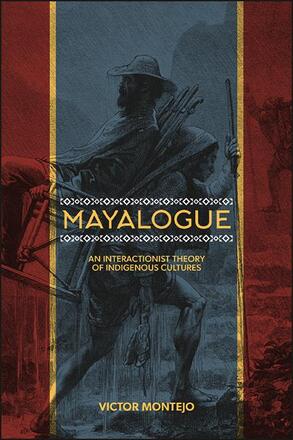
Mayalogue
An Interactionist Theory of Indigenous Cultures
Alternative formats available from:
Offers a strong critique of traditional anthropological studies from an Indigenous and postcolonial perspective.
Description
In Mayalogue, Native Mayan scholar Victor Montejo provides an alternative reading and interpretation of cultures, challenging Western ethnocentric approaches that have marginalized Native knowledge and worldviews in the past. He proposes instead a methodology for studying culture as a unified whole, a radical departure from the compartmentalized sections of knowledge recognized by Western scientific tradition. Offering a strong critique of traditional anthropological studies, with its terms and categories that have denigrated Indigenous cultures throughout the centuries, Montejo's postcolonial work aims to dismantle the colonialist construction of Indigenous cultures, giving way to a Native approach that balances insider and outsider descriptions of a particular culture. Developed from an Indigenous Maya perspective, Mayalogue is a contribution to the dialogue between Indigenous and non-Indigenous scholars, students, and general audiences in the social sciences and humanities, and will be an essential text in decolonizing the minds of those who engage in the study of cultures anywhere in the world in the twenty-first century.
Victor Montejo is Professor Emeritus of Native American Studies at the University of California, Davis. His previous books include Popol Vuh: A Sacred Book of the Maya; Maya Intellectual Renaissance: Identity, Representation, and Leadership; and Voices from Exile: Violence and Survival in Modern Maya History.
Reviews
"Mayalogue is not just an informative study about Maya prophetic cycles, beliefs, world renewal, and how to better understand Indigenous cultures. It is about how to be Indigenous in a globalized world. It is also a call to critically evaluate, appreciate, and incorporate the historic past into modern life in a way that respects the Maya cosmic trinity. Mayalogue is a fascinating book that will appeal to scholars of religious studies, the anthropology of religion, and Indigenous studies. It is a useful and important addition to the literature of decolonization and perspectival anthropology." — Nova Religio
"Montejo has produced a book worthy of consideration, particularly by undergraduates receiving their first exposure to Maya culture and those with interests in epistemology and the comparative study of knowledge systems that take Indigenous worldviews seriously." — The Mayanist